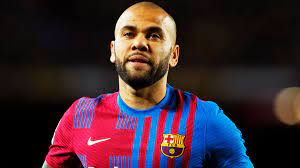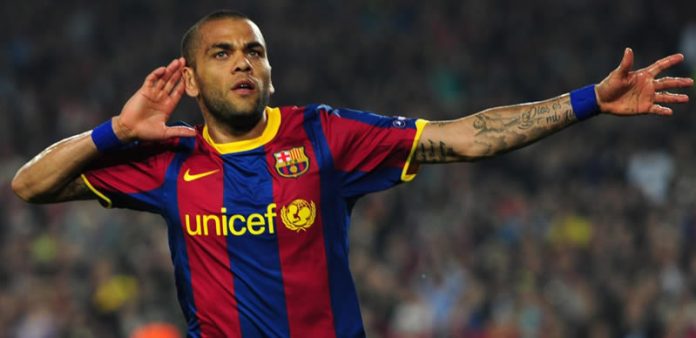Former Barcelona and Brazil football star Dani Alves has been sentenced to four years and six months in prison for the rape of a 23-year-old woman in a Barcelona nightclub back in December 2022. The verdict, delivered by the Audiencia Nacional in Barcelona, underscores a significant shift in the approach to addressing sexual assault cases, particularly within professional football.
According to a written statement from the court, the victim stated that she did not consent to sexual intercourse with Alves. The evidence presented during the trial supported her testimony, leading to the conviction. Despite maintaining his innocence, Alves and his legal team intend to appeal the verdict.
The prosecution had initially sought a nine-year sentence, while the victim’s legal representatives pushed for a 12-year term. Alves’s got a shorter sentence, than what was demanded, signals a departure from leniency towards high-profile individuals accused of such crimes.
Apart from the prison sentence, Alves has been ordered to pay €9,000 for physical damage to the victim and has offered €150,000 in compensation, a gesture recognized by the court during sentencing. Additionally, he will be under legal supervision for five years and faces a restraining order barring contact with the victim for nine years and six months.
This ruling demonstrates a broader social shift towards valuing the rights and wellbeing of victims of sexual assault. Legislation enacted in 2022 emphasizes that proof of sexual aggression does not hinge on physical injuries or the victim’s resistance, challenging traditional notions that often placed the burden of proof solely on the victim.

The reaction to the verdict has been overwhelmingly positive, with Spain’s vice-president, Yolanda Díaz, expressing optimism that it would set a precedent in the fight against sexism and sexual violence. Tània Verge, the Catalan equality minister, hailed the case as a milestone, highlighting the importance of nightclub protocols against sexual violence and ensuring trials proceed with full protection for victims.
It is particularly remarkable how Alves, who had a distinguished football career, winning several championships with esteemed clubs like Sevilla, Barcelona, Juventus, and Paris Saint-Germain, and also representing Brazil at the international level, has experienced such a significant fall from grace. His swift termination from Mexican club Pumas following his arrest underscores the gravity of the charges against him.
As Dani Alves’s case echoes throughout the football world, it serves as a reminder of the importance of addressing issues of sexual assault within the sports industry. Moving forward, it is crucial to uphold the principles of justice, accountability, and protection for victims, regardless of the stature of the accused.
In conclusion, Dani Alves’s sentencing marks a critical moment in confronting sexual assault in football, prompting necessary reflection and action to ensure a safer and more equitable environment for all involved.




